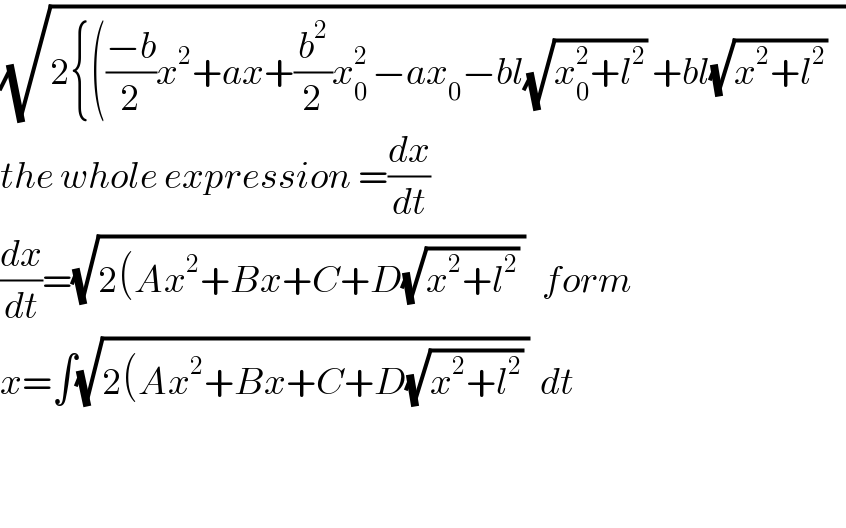
Question and Answers Forum
Previous in Differential Equation Next in Differential Equation
Question Number 40920 by ajfour last updated on 29/Jul/18

Answered by tanmay.chaudhury50@gmail.com last updated on 29/Jul/18

Commented by ajfour last updated on 29/Jul/18

Commented by tanmay.chaudhury50@gmail.com last updated on 30/Jul/18

